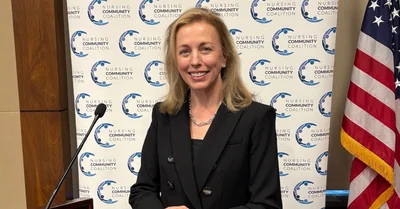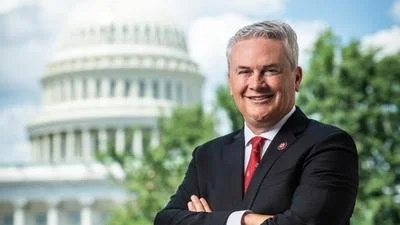House Budget Committee Chairman Jodey Arrington (R-TX) marked the anniversary of the Inflation Reduction Act, expressing concerns about its fiscal impact while contrasting with the White House's positive report on clean energy gains.
"Happy anniversary to the wealthy EV owners, green energy corporations with over $1 billion in profit, and the Chinese who are making tens of billions from supplying critical minerals to the U.S.--compliments of the hard-working, taxpaying Americans who can’t even afford gas or groceries for their families," Arrington said in a release.
In a statement released today, House Budget Committee Chairman Jodey Arrington (R-TX) commemorated the anniversary of the Inflation Reduction Act (IRA) by expressing his concerns about its impact on various sectors of the economy. While acknowledging the law's intentions to address clean energy, climate action, job creation, and equity, Chairman Arrington highlighted what he sees as unintended consequences.
He points out that the IRA's green energy tax incentives have incurred significantly higher costs than originally projected.
The Joint Committee on Taxation, a nonpartisan body, estimates that the special interest tax breaks within the law will cost at least $650 billion, a stark 240 percent increase from the initial estimate. Notably, Arrington draws attention to the electric vehicle tax credit, which he says is set to cost $101 billion, up from the original estimate of $14 billion. Additionally, he highlights the electric vehicle battery production credits, projected to cost taxpayers over $196 billion—a 542 percent increase from the initial estimate.
Arrington raises concerns about the law's potential impact on the national debt and fiscal stability, emphasizing the need to address what he perceives as reckless spending. He asserts that the law may lead the country into a sovereign debt crisis if unchecked.
On the other hand, the White House's fact sheet presents a contrasting perspective on the Inflation Reduction Act's achievements over the past year. The law is said to have facilitated substantial investments in clean energy manufacturing, particularly in the electric vehicle and solar technology sectors. These investments have purportedly resulted in the creation of numerous clean energy jobs and are projected to generate more over the next decade. The law also aims to reduce greenhouse gas emissions by a significant amount by 2030.
Furthermore, the White House fact sheet emphasizes the law's contributions to community resilience, affordable energy, healthcare savings, equity, and fair taxation. It highlights reductions in electricity and gas prices, capped costs for Medicare beneficiaries, negotiations on prescription drug prices, and measures against income inequality.
In conclusion, Chairman Arrington's statement reflects his concerns about the fiscal implications of the Inflation Reduction Act and its impact on various economic sectors. The contrasting perspectives presented by Chairman Arrington and the White House underscore the ongoing debates surrounding the law's effectiveness and consequences. As the anniversary of the IRA passes, it is evident that the law's impact continues to be a subject of discussion and analysis on multiple fronts.









